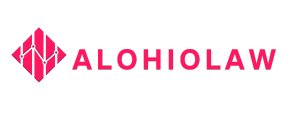When it comes to making smart investments, due diligence valuation is like having a trusty sidekick in a superhero movie. It swoops in to save the day by ensuring investors know exactly what they’re getting into. Imagine diving headfirst into a pool without checking for water first—risky, right? That’s what skipping due diligence feels like.
Table of Contents
ToggleUnderstanding Due Diligence Valuation
Due diligence valuation serves as a critical analysis tool for investors. This method allows for comprehensive assessment of investment opportunities by evaluating potential risks and rewards.
Definition and Importance
Due diligence valuation refers to the systematic evaluation of a business’s financial health, market position, and operational effectiveness. Understanding this evaluation process aids investors in making informed decisions. The practice plays a vital role in risk assessment, enhancing predictive accuracy about future performance. Conducting thorough due diligence helps identify potential liabilities and enables informed negotiations. By recognizing these factors, investors protect their interests and maximize investment outcomes.
Key Components of the Process
Several key components contribute to the due diligence valuation process. Financial analysis examines historical performance through income statements, balance sheets, and cash flow statements. Market analysis assesses industry positioning, competitive landscape, and growth potential. Operational evaluation explores business processes, management effectiveness, and employee capabilities. Legal scrutiny identifies potential litigation risks and compliance issues. Each component provides investors with specific insights essential for comprehensive decision-making. Together, these elements form a robust framework that facilitates thorough assessment and strategic planning.
Methods of Valuation

Various methods of valuation exist to determine the worth of a business during the due diligence process. Two prominent methods include Comparable Company Analysis and Discounted Cash Flow Analysis.
Comparable Company Analysis
Comparable Company Analysis (CCA) evaluates a business’s value based on the market performance of similar companies. Using financial metrics like revenue, EBITDA, and earnings per share, analysts derive valuation multiples. These multiples provide a benchmark, allowing investors to compare the target company’s performance against peers within the same industry. Accurate selection of comparable companies is crucial for reliable results. This method reflects current market sentiment and trends, providing context for potential investors.
Discounted Cash Flow Analysis
Discounted Cash Flow (DCF) Analysis projects a company’s future cash flows and discounts them back to their present value. This method rests on estimated revenues, operating expenses, and capital expenditures, leading to free cash flow calculations. Analysts apply an appropriate discount rate reflecting risk to arrive at a present value estimate. DCF Analysis highlights the intrinsic value of a business, emphasizing future cash generation potential over market sentiment. This approach serves as a more rigorous valuation method, especially for companies with stable cash flows.
Common Challenges in Due Diligence Valuation
Due diligence valuation faces specific challenges that can complicate the process. Addressing these issues is crucial for achieving accurate results.
Data Accuracy Issues
Data accuracy stands as a significant concern in due diligence valuation. Incomplete information can distort the financial picture of the business being evaluated. Accessing reliable data sources is vital, yet discrepancies often arise from outdated information or misreported figures. Inaccurate data can lead to flawed assessments of a company’s value. Investors depend on financial statements, market information, and operational details, all of which require verification. Establishing clear channels for data collection helps mitigate these risks.
Assumptions and Projections
Assumptions and projections play a central role in valuation techniques. The reliance on estimated future earnings introduces inherent uncertainty. Projection inaccuracies can arise from overly optimistic or conservative forecasts. Investors must balance potential growth with realistic expectations. Scrutinizing assumptions during the valuation allows for a more grounded analysis. Rigorous scenario planning enhances forecasting accuracy, enabling investors to anticipate various market conditions. Understanding the influence of these projections on overall valuation provides clarity in decision-making.
Best Practices for Effective Valuation
Effective valuation relies on various practices that enhance accuracy and reliability. Engaging experts during the valuation process increases the credibility of findings.
Engaging Professionals
Consulting professionals, such as financial analysts and valuation experts, provides critical insights. These individuals bring industry knowledge and experience, significantly improving the analysis. Utilizing their expertise ensures that all aspects, including financial analysis and market trends, receive proper attention. When professionals conduct the valuation, they apply rigorous methodologies, reducing the likelihood of errors. Investors achieve greater confidence in their decisions by relying on qualified professionals.
Regular Updates and Revisions
Staying current with market conditions through regular updates is vital. Revising valuation assessments addresses shifts in the economic landscape and operational performance. Frequent evaluations maintain relevance, especially in fast-paced industries. Regular updates also incorporate new data, reflecting the business’s changing dynamics. For many companies, consistent revisions help identify emerging risks and opportunities promptly. This proactive approach enhances decision-making and fosters strategic alignment with long-term goals.
Due diligence valuation is an indispensable tool for investors seeking to navigate the complexities of investment opportunities. By systematically evaluating financial health and market positioning, it empowers investors to make decisions grounded in data and analysis. The integration of methods like Comparable Company Analysis and Discounted Cash Flow Analysis enhances understanding and reduces risks.
Engaging professionals and staying updated on market conditions further solidifies the accuracy of valuations. This proactive approach not only protects investments but also uncovers potential growth avenues. Investors who prioritize due diligence valuation are better equipped to face uncertainties and seize opportunities in a dynamic market landscape.




